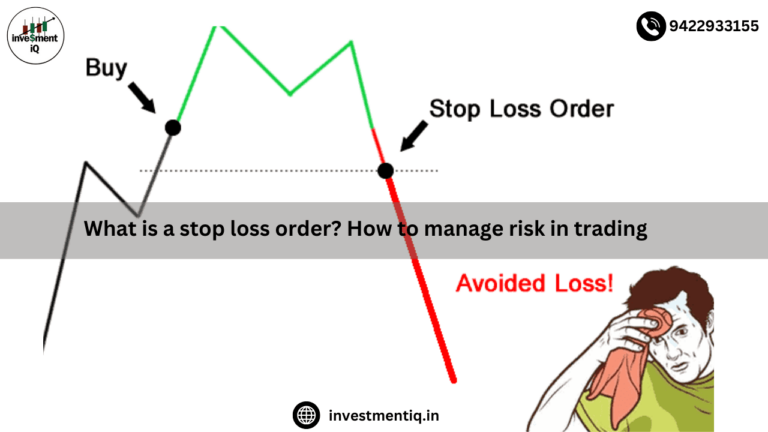
introduction
For financial backers and brokers, understanding the working long stretches of securities exchanges is pivotal for settling on informed choices and executing convenient exchanges. Financial exchanges all over the planet have explicit opening and shutting times, which direct when you can trade protections. Realizing these hours can help you plan, remain in front of market developments, and make the most of chances as they emerge.
In this thorough aide, we’ll investigate the opening and shutting seasons of significant securities exchanges worldwide, the meaning of pre-market and late night exchanging, and ways to explore different time regions.
Securities exchange Hours Made sense of
Securities exchanges for the most part work during standard business hours, however the specific times shift contingent upon the locale and market. Most stock trades work Monday through Friday, with ends of the week and public occasions commonly barred.
Here are the standard market hours for probably the most unmistakable stock trades:
US Financial exchanges
New York Stock Trade (NYSE) and Nasdaq:
Opening Time: 9:30 AM Eastern Time (ET)
Shutting Time: 4:00 PM Eastern Time (ET)
The NYSE and Nasdaq are two of the biggest stock trades universally, facilitating a great many organizations. Their exchanging hours are viewed as the norm for U.S. stock exchanging.
Pre-Market and Late night Exchanging
Pre-Market: 4:00 AM to 9:30 AM ET
Late night: 4:00 PM to 8:00 PM ET
During these lengthy hours, financial backers can exchange through electronic correspondence organizations (ECNs), despite the fact that liquidity might be lower, and spreads more extensive contrasted with customary exchanging hours.
European Securities exchanges
European business sectors open sooner than U.S. markets, making them a point of convergence for worldwide financial backers.
London Stock Trade (LSE):
Opening Time: 8:00 AM GMT
Shutting Time: 4:30 PM GMT
Euronext (Paris, Amsterdam, Brussels, Lisbon):
Opening Time: 9:00 AM CET
Shutting Time: 5:30 PM CET
Frankfurt Stock Trade (Germany):
Opening Time: 9:00 AM CET
Shutting Time: 5:30 PM CET
Key Contemplations:
European exchanging covers with U.S. markets in the early evening (GMT), making a time of uplifted movement as worldwide business sectors combine.
Asian Financial exchanges
Asia is home to the absolute biggest financial exchanges, remembering those for Tokyo, Shanghai, and Hong Kong.
Tokyo Stock Trade (TSE):
Opening Time: 9:00 AM JST
Shutting Time: 3:00 PM JST
Mid-day Break: 11:30 AM to 12:30 PM JST
Shanghai Stock Trade (SSE):
Opening Time: 9:30 AM CST
Shutting Time: 3:00 PM CST
Mid-day Break: 11:30 AM to 1:00 PM CST
Hong Kong Stock Trade (HKEX):
Opening Time: 9:30 AM HKT
Shutting Time: 4:00 PM HKT
Mid-day Break: 12:00 PM to 1:00 PM HKT
Key Contemplations
Asian business sectors open while Europe and the U.S. are shut, making them basic for merchants who need to remain dynamic nonstop.
Other Significant Financial exchanges
Toronto Stock Trade (TSX) (Canada):
Opening Time: 9:30 AM ET
Shutting Time: 4:00 PM ET
Australian Protections Trade (ASX):
Opening Time: 10:00 AM AEST
Shutting Time: 4:00 PM AEST
Indian Securities exchanges (NSE and BSE):
Opening Time: 9:15 AM IST
Shutting Time: 3:30 PM IST
Every one of these business sectors takes care of territorial financial backers yet in addition draws in worldwide members because of the special open doors they offer.
Why Financial exchange Hours Matter
Timing Your Exchanges
Knowing when markets open and close permits you to design your exchanges really, exploiting times of high liquidity and diminished instability.
Worldwide Market Connections
Financial exchanges don’t work in disengagement. Occasions in a single market, like the U.S., can affect markets in Europe or Asia. Understanding covers assists you with responding to worldwide turns of events.
Pre-Market and Late night Exchanging
Stretched out exchanging hours give chances to follow up on news and occasions outside standard hours, however they likewise accompany dangers like lower liquidity and more exorbitant cost instability.
Market Covers: A Period of High Movement
Market covers happen while exchanging long stretches of various business sectors cross. These periods are set apart by expanded exchanging volumes and cost developments, making them ideal for dealers looking for open doors.
Europe-U.S. Cross-over:
Time: 8:00 AM to 11:30 AM ET (1:00 PM to 4:30 PM GMT)
This cross-over consolidates the liquidity of U.S. what’s more, European business sectors.
Asia-Europe Cross-over:
Time: 3:00 AM to 4:30 AM GMT
This period permits brokers to progress among Asian and European business sectors.
What Occasions Mean for Financial exchange Hours
Securities exchanges are shut on significant public occasions. For instance:
U.S. Markets:
Shut on siestas like New Year’s Day, Autonomy Day, Thanksgiving, and Christmas.
European Business sectors:
Shut on nearby occasions like Great Friday or Boxing Day.
Asian Business sectors:
Shut for Lunar New Year or public occasions like Brilliant Week in Japan.
Check each market’s vacation timetable to stay away from surprising terminations.
Ways to explore Securities exchange Hours
Plan Around Your Time Region:
Utilize world clock devices or exchanging applications to monitor market hours in various areas.
Center around Market Covers:
Exchange during covers for better liquidity and more tight offered ask spreads.
Screen News and Occasions:
Critical occasions frequently happen before business sectors open or after they close. Be ready to change your system during pre-market or late night exchanging.
Influence Innovation:
Use exchanging stages with highlights like alarms, programmed requests, and admittance to broadened hours exchanging.
Comprehend Market Cycles:
Various seasons of day have novel qualities:
- Market Open: High unpredictability as merchants respond to expedite news.
- Late morning: Lower movement, particularly in U.S. markets.
- Market Close: Expanded instability as brokers finish positions.
conclusion
Understanding securities exchange hours is fundamental for effective contributing and exchanging. Whether you’re exchanging during normal hours or investigating pre-market and night-time open doors, knowing when markets open and close can assist you with pursuing better choices and gain by worldwide market patterns.
By really getting to know worldwide securities exchange timetables, covers, and broadened exchanging hours, you can streamline your speculation system and remain ahead in the quick moving universe of monetary business sectors.
you may be interested in ths blog here:-
What’s the difference between Treasury bonds, notes, and bills
Can I Open a Brokerage Account for My Child
What is the Contrast Between Favored Stock and Normal Stock?




